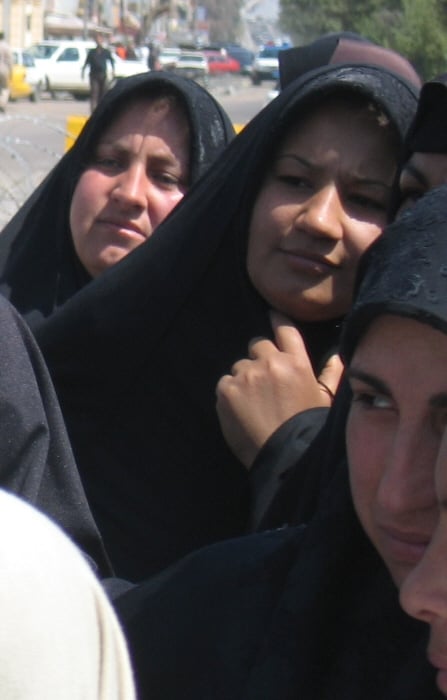Iraqi women parliamentarians and activists are pressing for a new law to help the increasing number of widows and divorced women in their war-torn country.
"We are in the process of presenting a new draft law which portrays the tragedy of the women who have no one to support them, like widows and the divorced," said member of parliament (MP) Nadira Habib, deputy head of Iraq's parliamentary committee for women's and children's affairs.
Nadira explained that there were no fewer than one million Iraqi widows who had lost their husbands in wars or as a result of internal violence over the past three decades.
She said only 800 billion Iraqi dinars (about US$664 million) is allocated in the 2008 budget to the country's social protection programme.
Created to cope with increasing social problems after the US-led invasion of Iraq in 2003, the social protection programme provides widows, divorced women, orphans, the handicapped and the unemployed with a monthly allowance of 50,000 Iraqi dinars each (about US$50).
"This is not enough. With the government's food rations, these allowances only take such families up [to] near the poverty line," Nadira said.
If the draft legislation is successful the Ministry of Women's Affairs would run the new programme in coordination with other government departments and non-governmental women's groups.
Salama Simaisim, an independent women's activist believed that helping such women find jobs would also be a boon for the economy as many of them depended solely on either the government or relatives for financial support.
Training
"We have to teach them how to fish, not give them fish to eat," said Simaisim. "The government's support should not be just financial but should include training programmes to help women find jobs in the public and private sectors," she added.
"There should be centres to rehabilitate them, to get those who abandoned their jobs back into work, and find jobs for the newly graduated - which is far better than handing them money," Simaisim explained.
Another female lawmaker and activist warned that if these families were not supported the whole society could fall apart. "The number of widows is increasing and if these families break up then the whole of society will be in danger," said Maissoon al-Damalogi.
"These women need to be rehabilitated and trained to work in many fields; to be useful and productive in society," al-Damalogi added.
sm/hk/cb
This article was produced by IRIN News while it was part of the United Nations Office for the Coordination of Humanitarian Affairs. Please send queries on copyright or liability to the UN. For more information: https://shop.un.org/rights-permissions





